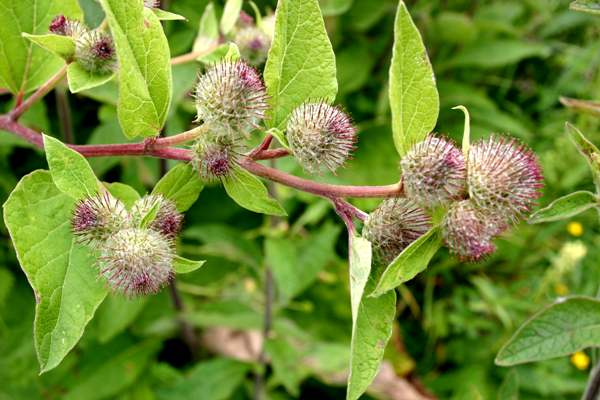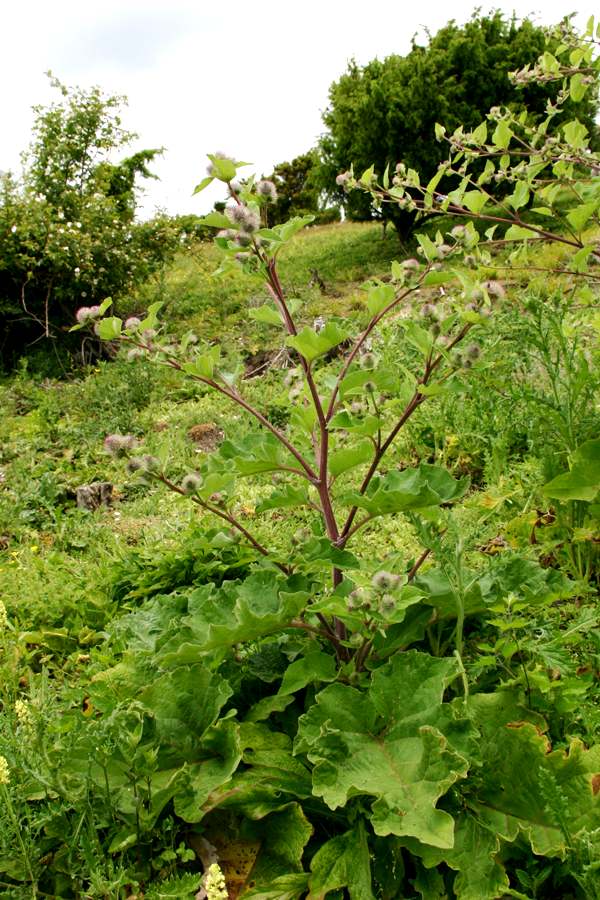Arctium lappa - Great Burdock
Phylum: Magnoliophyta - Class: Equisetopsida - Order: Asterales - Family: Asteraceae

This prickly wildflower is not in fact a member of the dock family; it belongs to the daisy family, Asteraceae. Great Burdock blooms from July until September, and these tall, branching plants are generally found in shady places or on waste ground. Typically, the plant grows to a height of 1.5 to 3 metres, with flower heads between 25 mm and 40 mm in diameter. The seed heads, or burs, have hooked bracts and become attached to the fur of animals; in this way the seeds are distributed.

Another burdock that you will find throughout the UK is the Lesser Burdock, Arctium minus. It is very similar to Great Burdock, but has somewhat smaller flowers with florets that are noticeably longer than the surrounding bracts.
Etymology
The specific epithet lappa means 'burr'.
The plant shown on this page was photographed in Hampshire, UK.
Sue Parker's latest ebook is a revised and enlarged edition of Wild Orchids in The Burren. Full details here...
Buy it for just £5.95 on Amazon...
Please Help Us: If you have found this information interesting and useful, please consider helping to keep First Nature online by making a small donation towards the web hosting and internet costs.
Any donations over and above the essential running costs will help support the conservation work of Plantlife, the Rivers Trust and charitable botanic gardens - as do author royalties and publisher proceeds from books by Pat and Sue.

